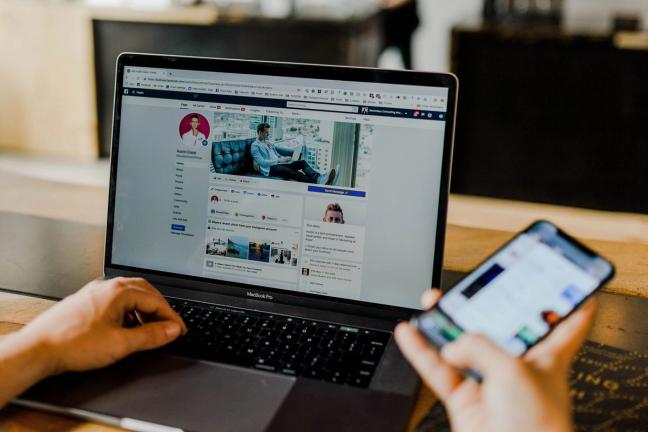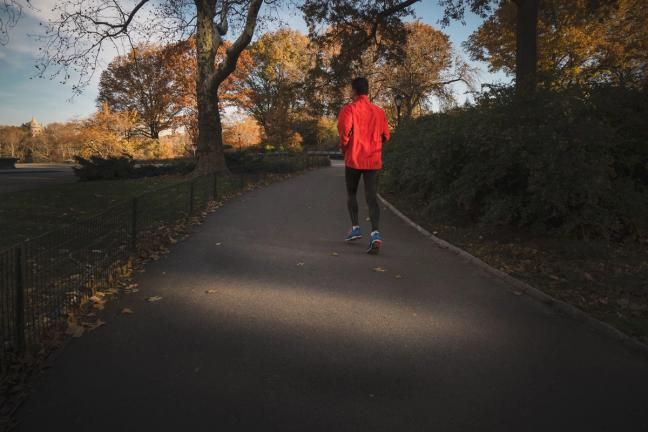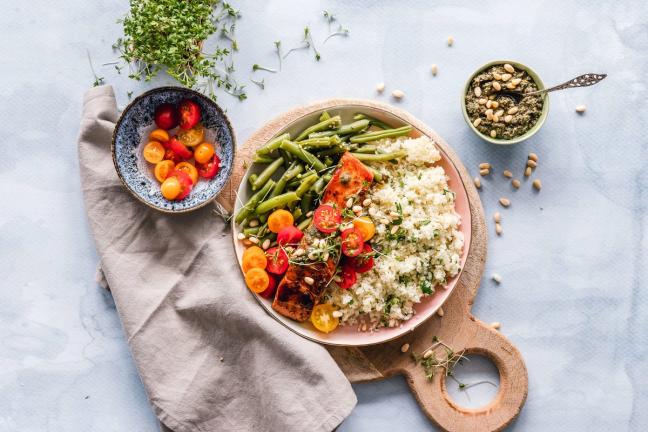How to manage stress and anxiety during the coronavirus pandemic
We ask the experts for their tips on getting through this extraordinary time
We’re living through a practically unprecedented moment. It’s been over 100 years since a pandemic on the scale of coronavirus has been documented and, naturally, many are feeling panicked, anxious and stressed about both the short and long-term effects Covid-19 may have on their lives. “Our survival brains will be running amok right now and telling us all to get ready for battle or head for the hills,” explains Michelle Scott, a psychotherapist at London’s Recovery Centre. “There is no doubt that this is a serious situation. At the same time stress and fear will not help us stay wise or well.”
When you’re stuck at home, staring at the same four walls with rolling news in easy reach, it can be tempting to give in to your fear. But, unfortunately, coronavirus is a marathon not a sprint, so it’s important to learn how to deal with these feelings constructively so you can continue to lead some semblance of a normal life. We asked the experts how to deal with the stress and anxiety of the coronavirus epidemic.
Locate the cause of your anxiety
“Coronavirus anxiety is not a single story – multiple levels of confusion, upheaval and unfamiliarity have combined to create a dynamic mass distribution of anxiety,” say hypnotherapist Malminder Gill, who has created an online course to help those suffering from coronavirus-induced anxiety. Before you can begin to tackle your stress, says Gill, you need to know where it’s coming from.
The upheaval caused by Covid-19 has been so widespread that there could be a number of factors causing your distress. Are you concerned about the health of yourself and your loved ones? Is it the economic uncertainty that’s causing your anxiety? Or perhaps you’re worried about how you would cope with being quarantined and the possibility of important life events, such as weddings or graduations, being cancelled. Try writing a list of all the things that are concerning you and then rank them in order of importance. By giving your feelings structure you will find them easier to manage.

Limit news and social media
Prepare yourself
Many of us are already working from home and, if you’re not yet, it’s almost certainly going to happen soon. It’s important, then, to prepare yourself for the realities of what it means to effectively social distance – stay at home, no trips to the pub, cinema or restaurants and no travelling to visit friends or relatives.
“Creating a sense of structure is important. It may be a good idea to clean your house and create a nice environment if you’re going to be stuck inside for longer than usual,” suggests Scott. “Try to focus on what you can do, rather than those things that you can’t. Recreate some of the positive benefits of going to work. Allow yourself regular treats, such as a coffee break or watching a movie once the working day is done.
“Eating well and sticking to a good sleep routine is also good for everyone. If you’re taking any regular medication make sure you have a good supply or get your repeat prescription organised and, if restrictions mean you can’t employ your usual coping strategies, reach out to someone you trust and ask for help on alternatives.”
Turn off the news and limit social media
In times of crisis it can become easy to feel you need to stay up-to-date with every new development the moment it happens. However, it doesn’t take an expert to work out what a 24/7 stream of inevitably bad news is going to do for your health, while the coronavirus myths and misinformation that often circulate on social media are a one-way ticket to panic.
“Anxiety is contagious and exposing yourself to other people’s concerns will increase your own stress,” explains Gill. “While it is important to stay in the loop; you do not have to be glued to the web for advice. Instead, try to pick just one or two trusted sources and limit the time you look at them to no more than three times a day.” Every time you feel tempted to check Twitter or turn on the news, pick up a book, watch a film or get on with some household chores to take your mind off it instead.

Make sure you get regular exercise
Learn these de-stressing techniques
Taking a few minutes to focus on yourself and your mental health is more important than ever and there are numerous strategies you can employ to maintain some equilibrium. “Meditating for just five minutes a day can cause significant improvements to our mental health,” says Gill. “In fact, studies have found that those who meditate enjoy a high quality of life and better coping mechanisms in times of stress and uncertainty.” If you’ve never tried meditation before there are numerous apps, such as Headspace, designed to ease beginners in.
Scott also suggests this easy technique for overcoming the effects of an overactive amygdala (the part of the brain that’s on the lookout for danger):
- Find a quiet place and look at what is around you – notice colours, smells, sounds.
- Try, if you can, to let any thoughts that feel as though they are attached to your anxiety to leave your mind for a moment. Just ask them gently to step aside.
- Focus on your body, noticing gently where the difficult emotion is in your physical body.
- Breathe into the emotion, noticing it – without judgement – and then exhale into the emotion. Repeat until you feel more calm. Add belly breathing as well to help you relax further.
Take control by helping others
“Feeling that there is nothing to look forward to in the near future – and that events are outside our control – is hard to come to terms with for many people,” says Scott. “That feeling of helplessness, loss of control and fear about the spread of the virus is a major problem and it can be easy to fall into avoidance and escape behaviours.”
However, if you are young, fit and healthy you fall into the lowest risk category for coronavirus, meaning you are best placed to help the most vulnerable. The World Health Organisation has identified the elderly, those with existing respiratory problems, the physically disabled or those with pre-existing mental health conditions as being at the most risk from both the physical and mental effects of the pandemic. Find a group in your local community that is organising efforts to reach these people and offer your help. It could be anything from doing someone’s shopping to calling a person who is self-isolating to relieve their loneliness – but doing something pro-active will help you regain a sense of control.

Try learning a new skill
Don’t give in to cabin fever
Whether you’re working from home and social distancing or are in full self-isolation, being confined to your home can easily become claustrophobic. If you’re not in quarantine, the easiest thing you can do to help relieve the pressure is take regular walks or runs outside. This falls within the government’s social distancing guidelines and it is well documented that exercise is the quickest route to boosting your mood.
If you live on your own, loneliness may quickly become a factor when social distancing. Don’t be afraid to reach out to friends and family and tell them how you’re feeling – it’s likely they’re so wrapped up in their own situations they might not have realised you’re alone. We’re also lucky to be in a golden age of connectivity technology. Scott suggests watching a Netflix series with a friend over FaceTime or arranging for you and a partner to tackle a complicated recipe in your own kitchens and then compare results.
At the other end of the scale, there are those who find themselves suddenly spending far more time with their partners and families than they’re used to. “We know that relationships can be placed under strain if you’re spending too much enforced time together – there are often divorces or break-ups following the Christmas break,” says Scott. “Try to carve out a few hours where you can be alone and do your own thing. If you enjoy different TV shows, do that separately, or agree a time when you’re going to have a room to yourself for some ‘me time’.
“Have fun and be kind to yourself and others. Balancing out the stress with more positive and pleasant experiences will not only pass the time but give you a much-needed dose of feel good hormones and send reassuring signals to your overwrought brain.”
We debunk some of the most prevalent coronavirus myths…
Join the Gentleman’s Journal Clubhouse here.

Become a Gentleman’s Journal Member?
Like the Gentleman’s Journal? Why not join the Clubhouse, a special kind of private club where members receive offers and experiences from hand-picked, premium brands. You will also receive invites to exclusive events, the quarterly print magazine delivered directly to your door and your own membership card.


